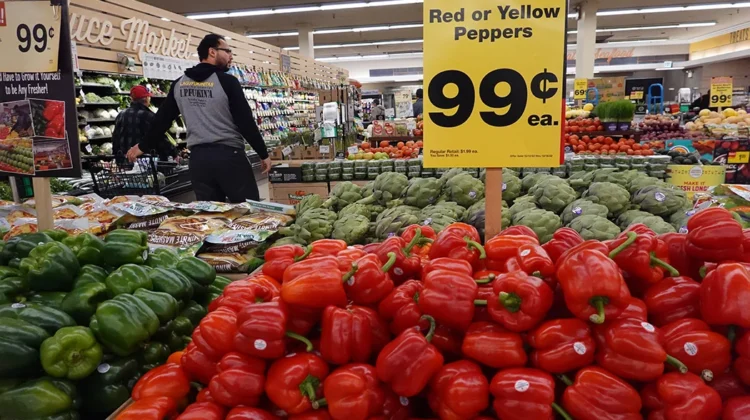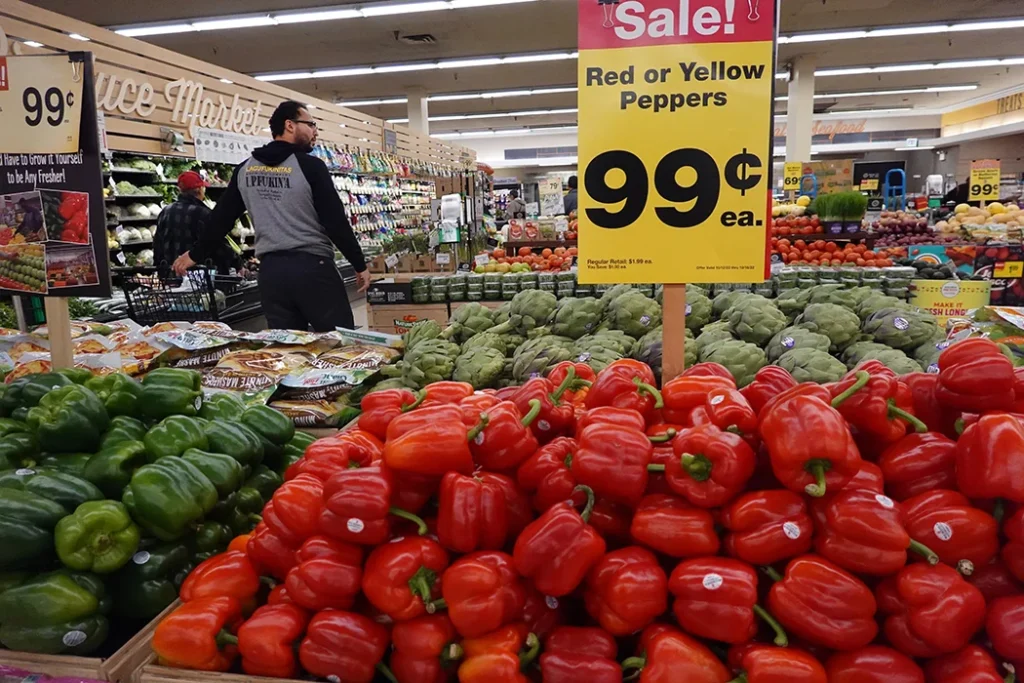
The supermarket revolution has made food more affordable and accessible than ever before. But are the hidden costs of cheap food feeding into false notions of justice and progress?
It might not seem obvious, but food has never been more affordable and accessible globally. This shift has distanced food production from the average consumer’s daily life. Instead of picking fresh berries at a local farm, buying produce from nearby markets, or having milk delivered to the doorstep, most people now purchase their food from supermarkets—massive, brightly lit spaces filled with endless aisles of packaged goods. As major retailers compete to capture market share, these superstores remain open longer and are more widespread. Global supply chains have become highly efficient, driving down food prices while expanding the range of available products—you can find everything from Mexican avocados to South African Rooibos tea in a typical U.S. supermarket, often available 24/7.
On the surface, making food cheaper and more accessible seems like a sign of progress. However, a deeper look reveals that our culture of constant food availability comes with significant hidden costs related to food justice.

Getty
In the current food system, industry giants hold power over both producers and consumers. As Eric Holt-Giménez and Yi Wang explain, agri-food corporations have stripped farmers and producers of their independence and control on a global scale. In the U.S., farmers have limited opportunities to sell directly to consumers, as vertically integrated retailers pressure them into contracts that promise income amidst a volatile market. These contracts force farmers to comply with corporate demands on what and how to grow, based on maximizing crop yields and land efficiency rather than focusing on nutritional value or environmental safety. This approach promotes monoculture farming, which supports mass food production but also devastates ecosystems, making agriculture a major contributor to climate change.
Further along the supply chain, independent grocers struggle to compete with the cost efficiencies of major retailers. Small-scale food operators—whether they are farmers, manufacturers, distributors, or grocery stores—often find it impossible to reach consumers without going through large retailers. Some smaller manufacturers have adapted by merging with larger companies, streamlining their operations to cut costs, which theoretically reduces consumer prices. However, this integration supports mass production and availability of food primarily in certain supermarkets, creating uneven access. Nutritionally rich and culturally relevant food is often concentrated in wealthier neighborhoods, leaving low-income areas with food deserts—a phenomenon known as food apartheid.
Ashanté Reese, author of Black Food Geographies: Race, Self-Reliance, and Food Access in Washington D.C., describes “food apartheid” as the inequitable access to healthy, sustainable, and culturally appropriate food, shaped by space, place, power, and systemic inequality. She emphasizes that food apartheid is deeply rooted in policies and practices influenced by anti-Blackness.
For consumers without adequate resources, including money and transportation, grocery shopping becomes a challenge. Major retailers contribute to this food apartheid by placing stores in locations driven by profit motives. Even when supermarkets are established in low-income areas, high prices restrict local consumers’ choices. Research consistently shows that dietary decisions are influenced by the food available to individuals, meaning that the quality of one’s diet is often determined by factors like location, income, and access to transportation.
If corporations were required to account for environmental sustainability, fair market competition, and food justice in their pricing, food would become far more expensive. However, this doesn’t justify compromising by polluting communities with agricultural chemicals, allowing greenhouse gas emissions to rise, or filling grocery stores with low-nutrient options. Instead, solutions could include stricter regulation of retail monopolies, support for independent food networks such as farmers’ markets and cooperatives, and rethinking subsidies to benefit farmers, workers, and consumers rather than corporate shareholders. Food must remain affordable and be made more accessible. Achieving food justice requires addressing the systems that have allowed corporate interests to profit from one of humanity’s most essential needs.

Leave a Reply